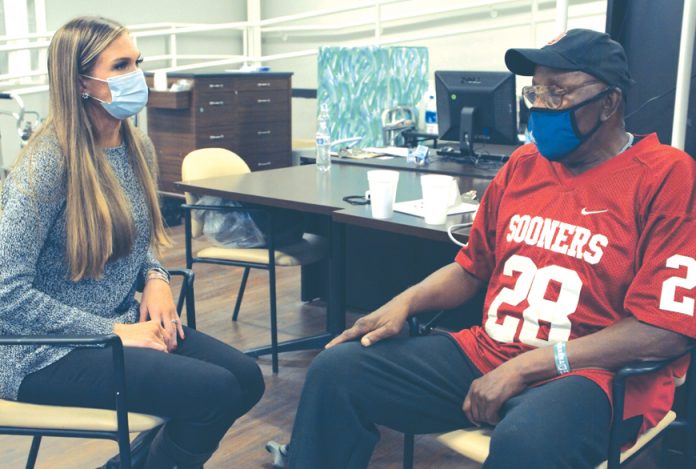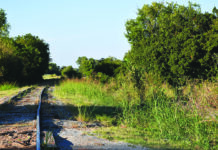This holiday season, Leslie Shaw, 66, is looking forward to time with family. It’s time the Oklahoma City man wasn’t always sure he would have when he was hit by a life-threatening stroke.
A massive stroke nearly claimed Shaw’s life, leaving him hospitalized, unable to walk or talk. His doctors warned family members to prepare for a funeral.
“I decided I wasn’t ready to get busy dying, so I’m going to get busy living,” Shaw said.
Shaw says he was in the hospital when he discovered Valir Pace, a program that could provide him with all-inclusive care.
“We’re able to identify a patient, evaluate and give them whatever amount of therapy they need. There’s not an insurance company saying, ‘OK, you qualify for this many visits and then done.’ We just go until the goal is achieved,” said Ashley Henson, a nurse practitioner with Valir Pace.
Shaw’s stroke happened just a few weeks before his 60th birthday. His godson noticed something was wrong.
“He said, ‘Godfather, your face is looking funny.’ I said, ‘Looking funny?’” Shaw said.
The young man told him his face was drooping. Not long after that conversation, Shaw collapsed and was rushed to the hospital. Doctors told him his only hope to recover was to start therapy as soon as possible.
“There’s a window of time after a stroke, we call it neuroplasticity, where the brain is just ready and ripe to rehabilitate,” Henson explained.
Henson said Shaw’s experience is an important wake up call for all families with older loved ones, adding the holidays are a good time for families to check on their loved ones. Those wellness checks should include making sure they are taking their medications properly and following their doctors’ directions, especially if they have high blood pressure or diabetes which both increase the risk of stroke.
Henson said it’s also a good time for families to familiarize themselves with the signs of stroke. The acronym F.A.S.T. can help families know what to look for, when it comes to stroke.
The “F” stands for facial asymmetry — that’s the “drooping” on one side of the face that Shaw’s godson noticed.
“Have them smile. If part of their mouth is not pointing upwards, that’s a sign,” Henson said.
The “A” stands for arm weakness. The “S” for speech issues, such as slurring their words or struggling with speech. And, the “T” is for time, meaning you need to get help quickly.
Shaw did get to the hospital quickly. He also began therapy shortly after his stroke, and with the help of his therapists, he regained the ability to walk – first with a walker, then a quad cane and eventually walking on his own, even completing a 5K walk with some of his Valir Pace team at his side. He continues to work each week to maintain his strength and mobility.
Shaw credits hard work, God’s grace, and his team at Valir Pace for his ability to continue to live independently and says he is ready to enjoy life with those he loves this holiday season.
To learn more about Valir Pace and whether you or a loved one qualifies, visit ValirPace.org














